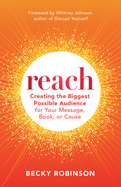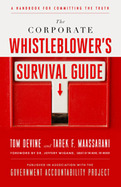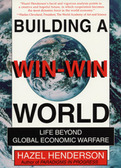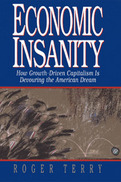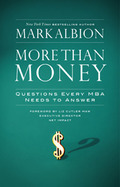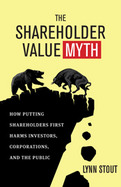2022
Anyone who makes the bold decision to put their ideas out into the world wants to reach as many people as possible. Unfortunately, too many think it's a question of numbers-the more people you can get in front of, the better. But true reach is about expanding your audience while making a meaningful and enduring difference that has a lasting impact.
Reach provides a clear and structured approach to creating a successful online presence that will create the biggest possible impact for any message. Becky Robinson shares a framework to cultivate followers that requires four commitments: value, consistency, endurance, and generosity. When you make these four commitments, you'll deliver memorable content on a regular basis while keeping the long-term view in mind and being committed to helping and sharing with others.
Robinson offers guidance on having realistic expectations and meaningful goals, encouraging readers to reflect on what they want to accomplish and with whom they want to connect. Readers will also learn how to overcome discouragements, create and repurpose content, and focus on the everyday activities that will spread ideas.
This is a long-term process-one that doesn't normally offer immediate results or guarantee the desired outcome. But, as Robinson reminds us, creating from a place of generosity can lead to benefits greater than you can imagine.
Corporate whistleblowers save lives, prevent fraud, and preserve the environment. But these results come through a long, difficult, draining, and often frightening process that leads many unprepared would-be whistleblowers to give up. Fortunately, they now have the support they need. This unprecedented and authoritative guide covers every step of the process—finding information to support your claims, determining whom to blow the whistle to, dealing with attacks from opponents, enlisting allies, understanding the law, and more.
-
Offers not just authoritative, accessible information but advice on every step of the whistleblowing process
-
Copublished with the Government Accountability Project, which has been aiding and protecting whistleblowers since 1977
-
Illustrated with vivid examples drawn from GAP's thirty-year history
- Click here for Press Release
Corporate whistleblowers save lives, prevent fraud, and preserve the environment. Some even become famous. But what the general public sees is the end result of a long, difficult, draining, and often frightening process. Whistleblowers rarely have any idea what they're in for and, daunted by the ferocity of the resistance and their feelings of isolation and helplessness, some give up, and others are broken financially and emotionally.
Blowing the whistle will always require courage and perseverance, but it no longer has to be done alone. The Corporate Whistleblower's Survival Guide will serve as an expert advisor for anyone contemplating bringing corporate wrongdoers to justice. Tom Devine and Tarek F. Maassarani draw on the accumulated experience of the Government Accountability Project, which since 1977 has helped over 5,000 people take on organizations like AIG, the World Bank, Procter & Gamble, Wyeth Pharmaceuticals--and win.
Devine and Maassarani detail every consideration potential whistleblowers should weigh and paint a vivid picture of the tactics corporations use to attack whistleblowers and cover up or deny damaging revelations. If you are considering blowing the whistle, this book offers hands-on, practical advice on every aspect of the process--finding information to support your claims, determining who to blow the whistle to, enlisting allies, and taking advantage of what legal options exist. The Corporate Whistleblower's Survival Guide will enable readers to bring vital information to light while keeping their sanity, relationships, and careers intact.
Building a Win-Win World demonstrates how the global economy is unsustainable because of its negative effects on employees, families, communities, and the ecosystem. Henderson shows that win-win strategies can become the norm at every level when people see the true current and future costs of short-sighted, narrow economic policies.
Henderson shows how humans are encountering the endgames of the competition/conflict paradigm, and identifies the signs of transition. Using warfare as a metaphor for the dark side of today's world economic system, she shows how both are destructive, inhumane, wasteful, irrational, inefficient, competitive, and crisis-driven. Both create more new problems than they solve. She describes how the globalization of the war system, technology, and industrialization brought the Cold War to a dead end. By the mid-1980s the global warfare paradigm had given ground to a global economic warfare which many economists, politicians, and business leaders hailed as a victory of capitalism and competitive "free markets." Yet this new type of warfare proved little better than the military warfare it was advertised to replace. By the mid-1990s global economic warfare had already reached crisis points of its own.
Building a Win-Win World examines how jobs, education, health care, human rights, democratic participation, socially responsible business, and environmental protection are all sacrificed to "global competitiveness." Henderson shows many ways out of the dilemmas faced by all countries. New agreements are described to tame the global economic casino, regulate multi-national corporations, and levy fees for commercial use of global common resources-oceans, atmosphere, space, etc.-and tax their abuse. These revenues can then be invested in civilian needs and sectors worldwide. She also describes a trend toward "grassroots globalism"-citizens movements that are addressing poverty, social inequities, pollution, resource-depletion, violence, and wars. Grassroots globalism, she says, is about thinking and acting-globally and locally. It is pragmatic problem-solving, implementing local solutions that keep the planet in mind. Such social innovations can raise the ethical floor under the global playing field so that the most ethical companies and countries can win.
- Explores current economic trends in search of ways to accelerate human development that are sustainable within the earth's ecosystems
- Examines how social innovations are finding expression in new forms of enterprise, new institutions, partnerships, and cooperative agreements that can lead to the building of a win-win world
- Offers positive approaches for concerned citizens who accept that personal development and rights bring a greater responsibility for the human family
1995
"Economic insanity" describes what is happening in America and the wider world beyond its borders. The economy is out of control-out of our control-to the point that it is in control. The economy has divorced itself from the political and social ideals that define the American Dream, which has been transformed from an all-inclusive social ideal to an economic fantasy.
In Economic Insanity, Roger Terry explains how and why economics has come to dominate all aspects of our lives. Basic political, social, and moral values used to hold us together as a nation. Today, it seems, the economy is all that holds us together. The most drastic effects of the rise of Economic America are the impoverishing of democracy, the loss of liberty, and the abandonment of equality. Terry shows how our present system is failing at its most fundamental task-to provide for the physical needs and wants of human beings-and concludes that the system does not need fixing, it needs to be replaced.
This provocative proposal exposes the misconceptions that drive our economic system and offers systemic and revolutionary solutions. With passion and persuasiveness, Terry asserts that in order to recapture the American Dream, we must begin to subject the economy to the ideals of democracy, liberty, equality, and unity.
Terry questions, and suggests we abandon, four fundamental pillars of capitalism: endless economic growth, ever-increasing productivity, accelerating technological advances, and self-interest. He shows how these basic assumptions that drive our version of the free-market system are causing a host of interrelated and deeply entrenched problems. He explores critical social dilemmas that result from our current economic assumptions, including the loss of personal freedom and democracy, the perpetual and unavoidable increase in inequality, and the disuniting of America. If we are to turn our nation from this path of folly, Terry argues, we must first abandon the faulty assumptions that drive our thinking.
Terry proposes a solution that redefines the notion of capital ownership, creating a system of limited, widespread ownership in which individuals own only as much capital as they can make personal productive use of. Under this system, employees become owner/partners, power is returned to people, self-interest is defused, technology is harnessed, and meaningful equality is encouraged.
Incorporating ideas from Adam Smith and Thomas Paine to Paul Johnson and Herman Daly, Economic Insanity challenges readers to stop looking for answers within the system and look instead to changing the system.
- Shows America's economic system to be at odds with its social and political goals and proposes a system designed to increase personal freedom
- Questions the most basic assumptions that drive our economic system, and argues that its entire structure must be challenged
2008


